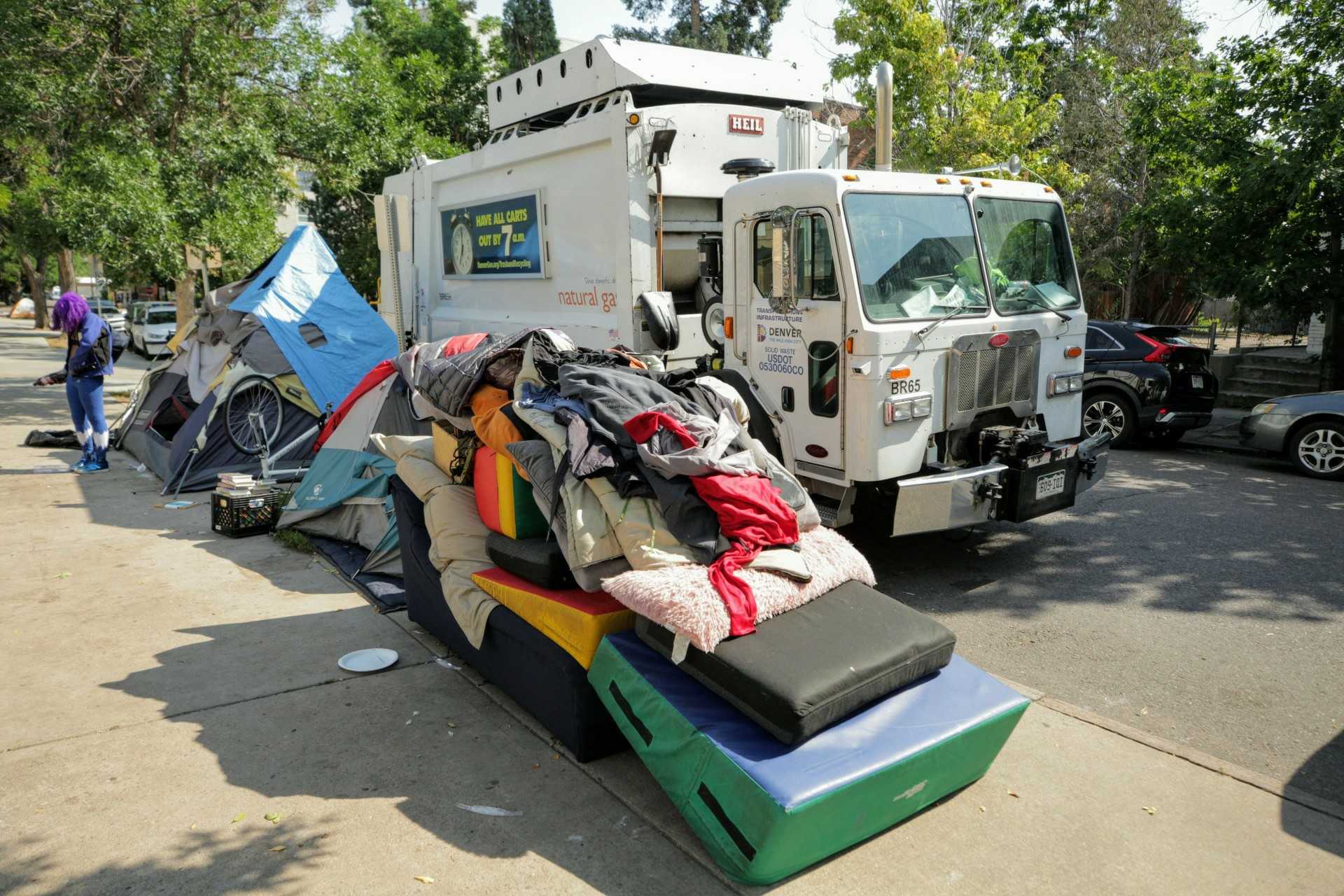A proposal to raise the sales tax to create a dedicated city fund to address homelessness is a step closer to landing on the ballot.
On Tuesday, Denver City Council's Finance and Governance Committee forwarded at-large member Robin Kniech's Homelessness Resolution Fund proposal to the full council. If it passes there, it will be presented to voters in November. On Monday, the full council agreed to let voters decide on a sales tax increase that would raise money to fight climate change.
Kniech is proposing a 0.25 percent sales tax, or 2.5 cents on every $10 purchased, for programs to get people out of homelessness. It would raise an estimated average of $40 million a year (likely less in the first year because of the current pandemic-caused economic downturn) and has no sunset clause.
Raising a tax that almost everyone pays is risky in a year of economic struggle, Kniech acknowledged. But she said that the exemption of food, medicine, fuel and feminine hygiene products softened the impact and that the city had limited fundraising options.
Denver's sales tax is currently 4.31 percent. Because Denver is part of the Regional Transportation District another 1 percent is charged for RTD and because it's part of the Scientific and Cultural Facilities District another 0.1 percent is charged for SCFD. The state sales tax of 2.9 percent brings the total to 8.31. If voters approve the increases of 0.25 each to address climate change homelessness, -- five more cents for every $10 spent -- a total of 8.81 percent in sales taxes would be charged in Denver.
Before Tuesday's vote, Kniech handed the virtual floor -- the meeting was held via online conferencing platform -- to two service providers who spoke of the need for more funding to improve shelters so that they can do a better job helping people find housing, create housing, and ensure people have the support they need to stay housed.
"This is not an act of charity, but really it's an act of justice," said John Parvensky, CEO and president of the Colorado Coalition for the Homeless.
Parvensky said Black Americans and other minorities are disproportionately affected by homelessness as a result of historic and continuing discrimination.
Christina Carlson told council members that the coronavirus, which also has hit minorities hard, has increased housing instability. Her Urban Peak, which supports teens and young people experiencing homelessness, has had to increase rental aid for people it had moved into apartments. One young woman, Carlson said, had asked whether she should move from her apartment back to Urban Peak's shelter after losing her job because of the pandemic.
Councilwoman-at-large Debbie Ortega said some in Denver are already questioning whether the city's services draw people here and whether surrounding communities should do more. Cathy Alderman, who is vice president of communications and public policy for the Colorado Coalition for the Homeless, said Denver would be leading the way, and pushing others, including the state, to follow. The coalition works across the state.
District 5 representative Amanda Sawyer asked what assurance voters would have that the new money would go toward "solving the problem better than what is in place now?"
Kniech said that while the city's existing affordable housing fund does pay for support such as rental assistance that the Homelessness Resolution Fund would also provide, it primarily supports higher income earners than her proposal targets. The affordable housing fund doesn't cover shelters or innovations such as tiny homes.
Kniech's proposal would help Denver turn innovations such as its social impact bond into programs that can serve more people, said Kinsey Hasstedt, the Denver-based state and local policy program director for Enterprise Community Partners, a national builder and financer of below-market housing.
The social impact bond has shown promise in getting people who have been on the streets for years into housing, Hasstedt said during the public comment period of Tuesday's committee meeting.
In the program that began in 2016 and has housed more than 200 people, the Colorado Coalition for the Homeless and the Mental Health Center of Denver use police arrest data to identify potential participants, then help them with housing and health, food, transportation, legal and other support. The program is funded with money from eight investors as well as from state and local housing resources and Medicaid reimbursements. City officials believe, and early research indicates, that the program will cost less than what is spent providing emergency room services and jailing people experiencing chronic homelessness.
Several speakers on Tuesday referred to Initiative 300, a failed bid to overturn the city's ban on urban camping. Parvensky said he opposed 300, which voters overwhelmingly rejected, because he did not believe it was the way to address homelessness. Kniech's proposal, he said, was a way to "do better," echoing the slogan of 300's main opponents.
The proposal is being raised at a time when service providers say that they are seeing more people losing housing because of the pandemic recession and that they fear even more will be on the streets in coming months.
"There are just so many people in need," Fisher said.













